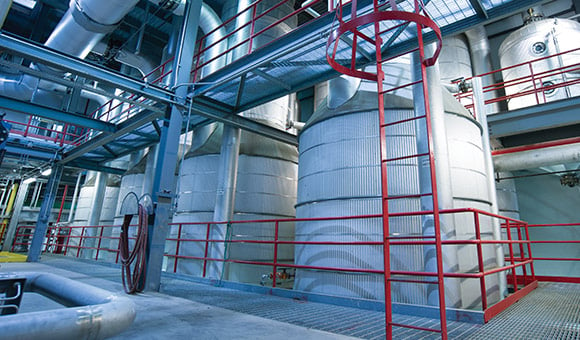
Polystabil scale inhibitors comprise a family of proprietary liquid products that effectively control the formation of mineral scale and inorganic hard scales, such as calcium carbonate, calcium oxalate, calcium sulfate and magnesium phosphate.
When used within a fuel ethanol plant, the family of products significantly reduces the potential for scale formation within evaporators, heat exchangers and associated piping, pumps and tanks. Continuous use reduces the rate of scale formation and modifies the structure of the scale so that it is more easily removed, resulting in less frequent and shorter downtime for system cleaning and maintenance.
Commercial applications confirm that the scale inhibitors provide a number of value-added benefits, including:
- Reduced fouling and deposition
- Increased ethanol production
- Reduced energy costs
- Reduced downtime
- Shortened maintenance outages
Features
Polystabil scale inhibitors contain no APEs or VOCs and are generally recognized as safe (GRAS) when coproducts from the ethanol process are used in livestock feed.
Notably, Polystabil scale inhibitors start working at a dosage level below traditional polyacrylate chemistries and allow higher dosages, up to 22.6 ppm, while still meeting regulatory requirements, thereby making this family of scale control products significantly more effective than conventional technologies.
How They Work
Polystabil scale inhibitors use multiple mechanisms to control scale, including dispersion, sequestration, threshold inhibition and crystal modification.
To prevent initial scale formation, the scale inhibitors nucleate small, scale-forming crystals in the bulk solution so that the crystals do not attach to and form scale on equipment surfaces.
To slow and minimize scale formation, the products modify the surfaces of existing crystals so that new layers of scale do not form. For any scale that does form, they disrupt the structure of the scale to make it softer and easier to remove.
More Information
If you would like free technical advice on further ways to control scale, ask a Solenis expert today.
